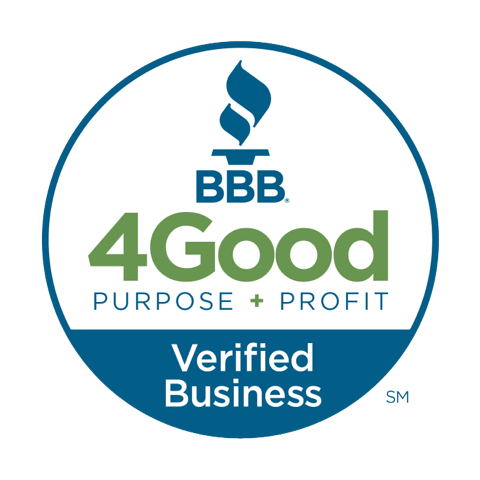
One of our Surrogate Mothers at 36 weeks.
A surrogate mother is a woman who carries a child or children for another person. The surrogate mother may carry for an individual or a couple that they have met through the help of a third party surrogate agency, an online forum or a personal friend or family member. Many surrogate mothers are compensated for their personal time and sacrifice during the surrogate arrangement, this is referred to as compensated surrogacy. Here at SAI we provide guidance, support and assistance to our surrogate mothers, through a legally compensated surrogate arrangement.
There are two types of surrogate mothers; traditional and gestational. A traditional surrogate mother is biologically related to the child that she carries and a gestational surrogate mother is not. Due to medical advances, gestational surrogate arrangements are preferred and are more common today. For over a decade, SAI has proudly assisted intended parents, surrogate mothers and egg donors through gestational carriers and egg donation arrangements. Continue reading to learn more about the basics of surrogacy.
Traditional Surrogate:
In the late 1700’s, a Scottish-born surgeon named, John Hunter impregnated a woman during her natural ovulation cycle using her husband’s sperm; resulting in a successful pregnancy. This technique is now known as Artificial Insemination.
A traditional surrogate is a woman who agrees to become pregnant using her own ovum/eggs for another person through a medical procedure known as Artificial Insemination (AI or IUI). The sperm is provided by either the intended father or a sperm donor and is safely inserted into the traditional surrogate mother’s uterus during either her natural or medically enhanced ovulation cycle with the assistance of a physician. A traditional surrogate mother is biologically related to the child she carries and gives birth to.
Gestational Surrogate:
In 1978, a hospital in Great Britain welcomed the birth of Louise Brown, the world’s first “test tube” baby born through a medical process known today as In-Vitro Fertilization (IVF).
A gestational surrogate is a woman who agrees to become pregnant for another person through a process called In-Vitro Fertilization. A gestational surrogate mother is not biologically related to the child. Embryos are created within a laboratory using the ovum/eggs of either the intended mother or an egg donor and the sperm of either the intended father or a sperm donor. The ovum/eggs are retrieved from the woman’s body through a medical procedure called an egg retrieval. The mature eggs are then fertilized with the sperm provider’s sperm, creating an embryo. Afterward the embryos are then safely transferred into the uterus of a gestational surrogate mother with the assistance of an IVF Physician.
Legal Comparison:
In other countries and within the United States, many states do not recognize traditional or gestational surrogate arrangements and will recognize the surrogate mother as the legal parent until a full adoption is completed after the surrogate mother gives birth to the child. However, in the State of California, a woman who enters into a proper legally represented traditional or gestational surrogate mother arrangement and gives birth within the State of California, can relinquish her biological and legal rights to the child or children and appoint the intended parent or intended parents as the rightful and legal parents before the child or children are born. For this reason, California is often referred to as the most “surrogate friendly” State. Prior to the surrogate mother becoming pregnant a legal surrogate agreement between the intended parents and the surrogate mother will be signed, reflecting the surrogate mother’s intent to become pregnant for the intended parent or intended parents. During the surrogate pregnancy, a third party reproduction attorney will complete a legal process referred to as the “parental establishment process”. Once this process is completed, the intended parent will be provided a certified Pre-Birth Order (PBO) approved by the State of California which will allow them to be listed on the US birth certificate as the rightful and legal parent once the child or children are born; an adoption will not be necessary.
Although California recognizes both traditional and gestational surrogate mother arrangements, many intended parents prefer gestational surrogate arrangements to assist them in creating or enhancing their families. Gestational surrogate arrangements allow intended parents the opportunity to have a child that is biologically related to them and take full advantage of numerous IVF medical advances. Over the years, SAI has proudly seen these medical advances help people from all over the world who have struggled with infertility for many years or been led to choose third party reproduction assistance in order to achieve their dream of having a family.
How can our agency help you?
Surrogate Alternatives, Inc. (SAI) has been in business since 1998 and is proud to have assisted people from all over the world through third party surrogate mother and egg donation arrangements. Our agency has successfully helped create thousands of happy families over the years, resulting in the birth of more than 1,000 children through our surrogate mother program alone; and that number continues to grow each day as we continue to help others through their personal journeys. We can help you too! With our agency you can expect a reputable, reliable, knowledgeable, supportive and caring staff to guide you step-by-step throughout your entire journey. Many of our staff members, have personally been surrogate mothers themselves, which allows us to provide you with a more personable experience. Having been surrogate mothers ourselves, we are able to recognize the emotional and physical commitment necessary in potential surrogate mother candidates and provide you with quality surrogates to choose from. Once matched, you can expect our efficient staff to assist you throughout the screening and legal process. The time frame for each journey will vary depending on various factors such as availability of all parties involved, however a typical outline is shown below.
- Retain agency for surrogate match services (1-5 days to complete)
- Psychological and medical screening process (1-2 weeks from a confirmed match)
- Legal process (2-4 weeks from a completed psychological and medical screening)
- IVF stimulation medication start date (0-4 weeks from legal contract signing)
- First embryo transfer/pregnancy attempt (4-6 weeks from IVF medication start date)
- Pregnancy blood test results (10-14 days from embryo transfer date)
- Confirmation of pregnancy ultrasound (2-3 weeks from positive pregnancy blood test date)
- Average singleton pregnancy term (36-40 gestational weeks)
- Average twin pregnancy term (32-38 gestational weeks)
- Parental establishment legal process (begin process between 15-18 gestational weeks of pregnancy; completed prior to birth)
- Post-birth support and responsibility (12 weeks)
- Case finalization and escrow account closure (1 year post-birth)
A surrogate arrangement which successfully achieves a viable pregnancy with the first attempt typically will be completed within 12-15 months. However, should any unforeseen delays arise; intended parents can rest assured they are in good hands with our reputable and experienced agency.
When is the assistance of a Surrogate Mother needed?
An individual or a couple may choose a surrogate mother to assist them in building or expanding their family for various reasons such as:
- Diagnosed or unexplained infertility (see common terms below)
- Medical conditions preventing a woman from carrying a pregnancy without risking her own life
- Loss or absence of reproductive organ
- Hysterectomy (uterine loss)
- Antibodies
- Repeat miscarriages
- Failed own IVF and IUI cycles
- Age
- Sexual orientation
- Sterility
- Tubal Ligation or Vasectomy
- Blood disorders
- Heart conditions
- Genetics (choosing to avoid passing genetic traits/conditions to their child)
- Gender selection preferences
- Failed or denied adoption
- Cancer survivors with fertility loss







